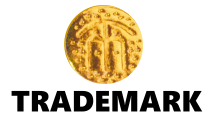Performance is usually measured against expectations and set goals. Where, for instance, duties or functions are legislated without the direct input of the immediate stakeholders, it becomes difficult to change the status quo because of established bureaucratic processes. This writer will do a yeoman’s job of attempting to create a marking scheme for the institutions named in the caption, so that we can do away with the notion of “no examination, no result.”
For the Chartered Insurance Institute of Nigeria (CIIN), the key Performance Indicators would be: Does their examination syllabus have enough local content even as we strive to be globally competitive? As the education/training arm of the industry, do they follow up on the performances of their certificate holders in their work places to confirm whether or not their training has any impact? Do they prioritize the quality of their training over the “need” to a fill a perceived professionals’ gap or vice versa? How do current employers rate products of the CIIN with regard to recognition and reward?
For NAICOM, let us try these parameters: What is the level of compliance with the compulsory insurances? How lenient or harsh has NAICOM been in the imposition of fines on operators for infractions committed? How well, if at all, has NAICOM liaised with other MDAs like the CBN in addressing the issue with Marine insurance policyholders who pay premiums in advance as directed, but whose policies expire while still queuing at their banks for forex to activate their imports? What score can we give NAICOM for their efforts at increasing liquidity for the industry through insurance penetration and rating?
The following questions will be asked of the NCRIB: Has the brokers’ control of insurance business in Nigeria been on the rise or decline in the last one decade? What level of effort has been made to ensure that CEOs of brokerage firms actually own 25% shares in their respective companies? Has a minimum remuneration threshold been designed for workers in brokerage outfits or are they left to the whims and caprices of some shylock owners who pay their CEOs the equivalent of USD200:00 per month?
The focus on just these institutions is because they each have a charter status and are, therefore, mandated to function by law. The Institute of Loss Adjusters of Nigeria (ILAN), the Nigeran Insurers Association (NIA) and the Professional Reinsurers Association of Nigeria (PRAN) continue to make invaluable contributions to the growth of the industry. An appropriate time and space will be provided to evaluate these in due course. The idea behind this intervention is to at least request that those at the helm of affairs at institutions backed by law are not just there; they need to be available, accessible and accountable.
LAST LINE:
Majeed Dahiru, a columnist with the Sun Newspapers, writing in the 22nd March, 2023 edition of the newspaper under the caption: When tribalism is worse than religion wrote: “If Nigeria does not kill tribalism then tribalism will kill Nigeria as it did Somalia, Lebanon and Sudan. Until it becomes possible to be Igbo and Lagos, Yoruba and Anambra, Enugu, Abia, Ebonyi and Imo, Nigeria, a country of primitive tribesmen will be perpetually trapped at the bottom of the pyramid of human evolution, where life is nasty, brutish and short.”



